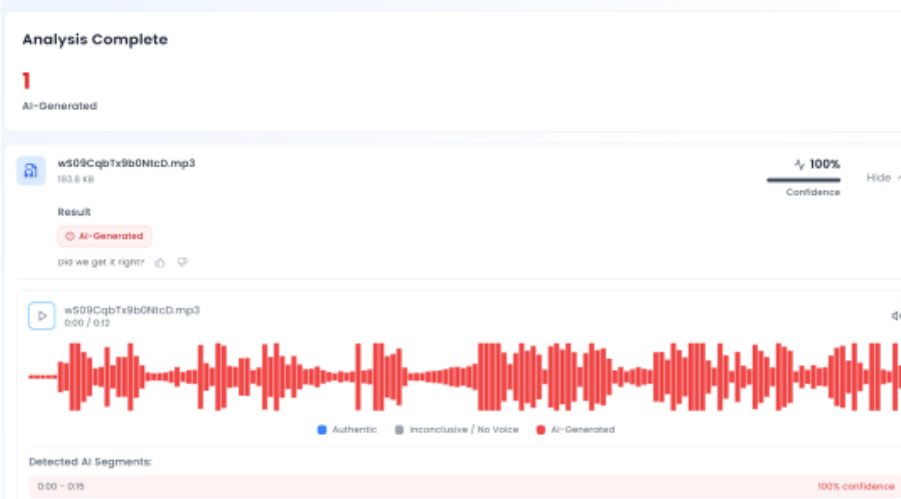Empowering Youth for a Secure Digital Future: AI Upskilling as the Key to Resilience
Introduction
Empowering today’s youth with the right skills is more crucial than ever in a rapidly evolving digital world. Every year on July 15th, the United Nations marks World Youth Skills Day to emphasise the critical role of skills development in preparing young people for meaningful work and resilient futures. As AI transforms industries and societies, equipping young minds with digital and AI skills is key to fostering security, adaptability, and growth in the years ahead.
Why AI Upskilling is Crucial in Modern Cyber Defence
Security in the digital age remains a complex challenge, regardless of the presence of Artificial Intelligence (AI). It is one of the biggest modern ironies, and not only that, it is a paradox wrapped in code, where the cure and the curse are written in the same language. The very hand that protects the world from cyber threats can very well be used for the creation of that threat. This being said, the modern-day implementation of AI has to circumvent the threats posed by it or any other advanced technology. A solid grasp of AI and machine learning mechanisms is no longer optional; it is fundamental for modern cybersecurity. The traditional cybersecurity training programs employ static content, which can often become outdated and inadequate for the vulnerabilities. AI-powered solutions, such as intrusion detection systems and next-generation firewalls, use behavioural analysis instead of just matching signatures. AI models are susceptible, nevertheless, as malevolent actors can introduce hostile inputs or tainted data to trick computers into incorrect classification. Data poisoning is a major threat to AI defences, according to Cisco's evidence.
As threats surpass the current understanding of cybersecurity professionals, a need arises to upskill them in advanced AI technologies so that they can fortify the security of current systems. Two of the most important skills for professionals would be AI/ML Model Auditing and Data Science. Skilled data scientists can sift through vast logs, from pocket captures to user profiles, to detect anomalies, assess vulnerabilities, and anticipate attacks. A news report from Business Insider puts it correctly: ‘It takes a good-guy AI to fight a bad-guy AI.’ The technology of generative AI is quite new. As a result, it poses fresh security issues and faces security risks like data exfiltration and prompt injections.
Another method that can prove effective is Natural Language Processing (NLP), which helps machines process this unstructured data, enabling automated spam detection, sentiment analysis, and threat context extraction. Security teams skilled in NLP can deploy systems that flag suspicious email patterns, detect malicious content in code reviews, and monitor internal networks for insider threats, all at speeds and scales humans cannot match.
The AI skills, as aforementioned, are not only for courtesy’s sake; they have become essential in the current landscape. India is not far behind in this mission; it is committed, along with its western counterparts, to employ the emerging technologies in its larger goal of advancement. With quiet confidence, India takes pride in its remarkable capacity to nurture exceptional talent in science and technology, with Indian minds making significant contributions across global arenas.
AI Upskilling in India
As per a news report of March 2025, Jayant Chaudhary, Minister of State, Ministry of Skill Development & Entrepreneurship, highlighted that various schemes under the Skill India Programme (SIP) guarantee greater integration of emerging technologies, such as artificial intelligence (AI), cybersecurity, blockchain, and cloud computing, to meet industry demands. The SIP’s parliamentary brochure states that more than 6.15 million recipients have received training as of December 2024. Other schemes that facilitate educating and training professionals, such as Data Scientist, Business Intelligence Analyst, and Machine Learning Engineer are,
- Pradhan Mantri Kaushal Vikas Yojana 4.0 (PMKVY 4.0)
- Pradhan Mantri National Apprenticeship Promotion Scheme (PM-NAPS)
- Jan Shikshan Sansthan (JSS)
Another report showcases how Indian companies, or companies with their offices in India such as Ernst & Young (EY), are recognising the potential of the Indian workforce and yet their deficiencies in emerging technologies and leading the way by internal upskilling and establishing an AI Academy, a new program designed to assist businesses in providing their employees with essential AI capabilities, in response to the increasing need for AI expertise. Using more than 200 real-world AI use cases, the program offers interactive, organised learning opportunities that cover everything from basic ideas to sophisticated generative AI capabilities.
In order to better understand the need for these initiatives, a reference is significant to a report backed by Google.org and the Asian Development Bank; India appears to be at a turning point in the global use of AI. As per the research, “AI for All: Building an AI-Ready Workforce in Asia-Pacific,” India urgently needs to provide accessible and efficient AI upskilling despite having the largest workforce in the world. According to the paper, by 2030, AI could boost the Asia-Pacific region’s GDP by up to USD 3 trillion. The key to this potential is India, a country with the youngest and fastest-growing population.
Conclusion and CyberPeace Resolution
As the world stands at the crossroads of innovation and insecurity, India finds itself uniquely poised, with its vast young population and growing technologies. But to truly safeguard its digital future and harness the promise of AI, the country must think beyond flagship schemes. Imagine classrooms where students learn not just to code but to question algorithms, workplaces where AI training is as routine as onboarding.
India’s journey towards digital resilience is not just about mastering technology but about cultivating curiosity, responsibility, and trust. CyberPeace is committed to this future and is resolute in this collective pursuit of an ethically secure digital world. CyberPeace resolves to be an active catalyst in AI upskilling across India. We commit to launching specialised training modules on AI, cybersecurity, and digital ethics tailored for students and professionals. It seeks to close the AI literacy gap and develop a workforce that is both morally aware and technologically proficient by working with educational institutions, skilling initiatives, and industry stakeholders.
References
- https://www.helpnetsecurity.com/2025/03/07/ai-gamified-simulations-cybersecurity/
- https://www.businessinsider.com/artificial-intelligence-cybersecurity-large-language-model-threats-solutions-2025-5?utm
- https://apacnewsnetwork.com/2025/03/ai-5g-skills-boost-skill-india-targets-industry-demands-over-6-15-million-beneficiaries-trained-till-2024/
- https://indianexpress.com/article/technology/artificial-intelligence/india-must-upskill-fast-to-keep-up-with-ai-jobs-says-new-report-10107821/







